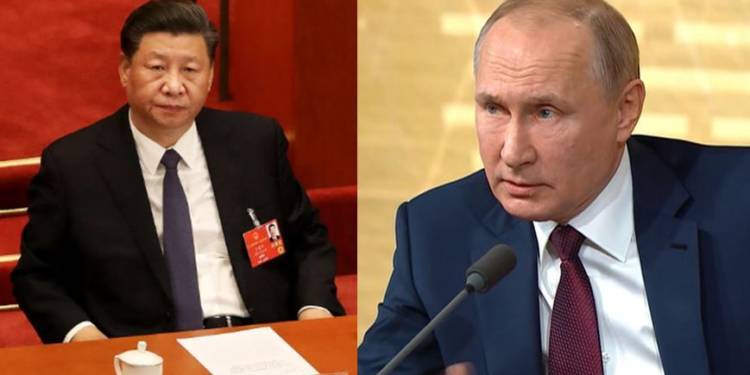China is facing the biggest setback in the African Continent till date. Last month, US Donald Trump pulled Sudan out of isolation by removing it from Washington’s list of State-sponsors of Terrorism (SST), and working on a normalisation deal between Sudan and Israel. And now, even Moscow has disclosed a draft agreement with Khartoum to establish a naval logistics base on the Sudanese coast in the Red Sea.
China is thus facing a double whammy in Sudan, the gateway of Africa, as both its enemies- the United States of America and the Russian Federation are making significant inroads in Sudan. Both the White House and the Kremlin are thus looking to kick China out of the strategically-located and resource-rich Sudan.
Moscow has also expressed willingness to supply weapons and military equipment to Sudan for free with the purpose of maintaining an air defence system at the proposed naval facility. Russia is therefore warming upto Sudan by offering military support against a wide variety of security threats dominating Africa’s Sahel region.
A statement by the Russian Prime Minister Mikhail Mishustin read, “The project stems from a mutual desire of Moscow and Khartoum to strengthen and develop military cooperation to increase the defence capacity of both States.”
Sudan is quite an important country for any power that wants to become influential in the African Continent. Firstly, Sudan is blessed with rich gold and oil deposits. And secondly, Sudan is a gateway to African and Middle Eastern markets. The strategically-located Port Sudan, for instance, serves as an important point of access to African and Middle Eastern markets.
Till now, Chinese influence was growing dangerously in Sudan. The trend of growing Chinese influence in Sudan traces its origins to the 1998 US bombings in the African country when Bill Clinton was at the helm of affairs in the White House. The subsequent American sanctions on Sudan had opened the floodgates of predatory Chinese investment in the war-torn country that had no other means of bringing in foreign investments.
Today, China controls 75 per cent of Sudan’s oil industry and the paper Dragon’s tentacles have spread even to other sectors of the Sudanese economy. The vacuum left behind by the US allowed China to make Khartoum a part of the Belt and Road Initiative (BRI) and assume near-total control of much of the Sudanese economy.
In fact, Sudan is the opening point of Beijing’s influence in Africa. Khartoum remains one of the most important BRI partners for the Xi Jinping administration within Africa given the vast regional access offered by Sudan.
China’s growing influence in Sudan and Africa was always a matter of grave concern. The paper Dragon wanted to usurp Africa, by overwhelming the Sudanese economy. But Trump and Putin have dealt consecutive jolts to Beijing in Sudan, even as the US and Russia make inroads in Khartoum at China’s expense. American humanitarian aid and Russian military aid are now likely to eat up all the influence that China has built in Sudan over the past two decades or so.








